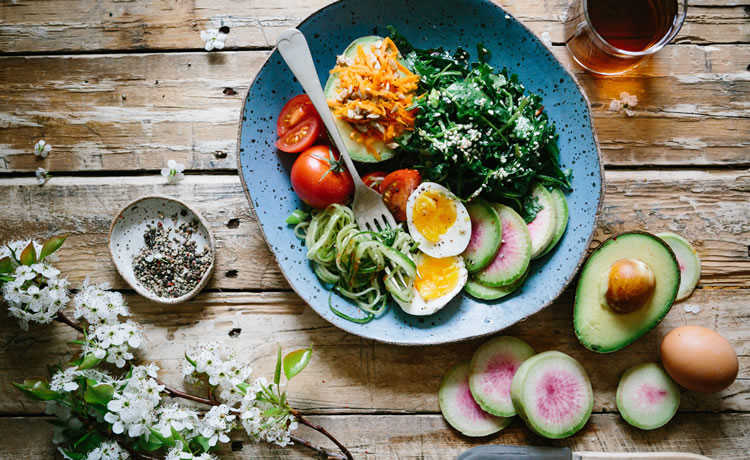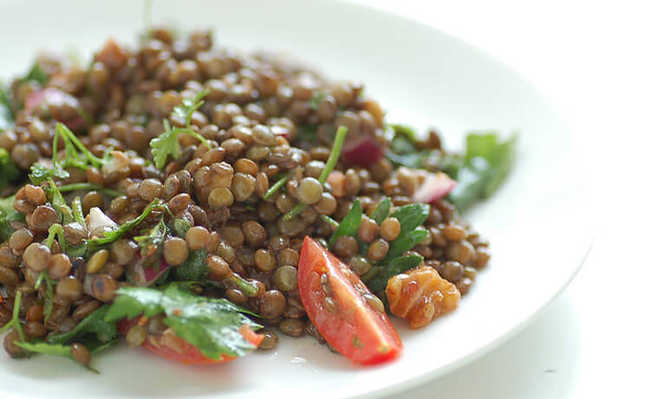How to be a vegetarian: 12 must-see tips
Attitude of being a vegetarian helps the person, the pocket and the environment

Some campaigns, such as the Monday Without Meat movement, show the benefits of being a vegetarian or of having this style of eating at least a few days a week. Individual examples can also have a positive influence on this type of behavior, such as the testimony of TreeHugger founder Graham Hill, who explains why he became a vegetarian every weekday (see video at the bottom of the page). Reducing your water footprint, a healthier life you lead, saving money, reducing your emission of polluting gases and losing a little weight are among the benefits of being a vegetarian .
This kind of outreach is giving rise to two types of occasional vegetarians. The first is someone who considers himself a vegetarian, but who sometimes eats meat - but who wants to persist in vegetarianism. And the other type is the one who eats meat, but seeks a more balanced and healthy diet. If you fit one of these types, follow below 12 tips on how to be a vegetarian at least five weekdays a week:
1. Change the pantry
To do this, call your friends to speed up the service or wait until you run out of stocks to start the renewal. Once the pantry is emptied, get ready for shopping. Lentils and chickpeas are great healthy options, but there are other types of beans and peas you can add to your shopping list, such as cannellini, butter, and black beans, which are great for protein delivery. In order not to leave out carbohydrates, options are bulgur wheat, quinoa, pearl barley and various types of rice, such as arboreal, wholegrain and wild rice.
2. Go to a vegetarian restaurant
With this, in addition to creating the habit of eating vegetarian food outside the home, you can be inspired by various dishes and ideas to make yourself. To be a vegetarian five days a week, you will need a lot of creativity and imagination, which can be honed in these places.
3. Give priority to certain kitchen utensils
Mainly the good and reliable knives, the food processor and the fearsome and efficient pressure cooker.
4. Become a food expert
Post any food advice you have on your social networks and accumulate recipes you find in books or on the internet itself. Invest in good cookbooks and follow cooking TV shows that interest you.
5. Less chicken and more legumes
Legumes such as beans, lentils, chickpeas and peas are great choices for healthy, high-protein foods. Learn how to make different recipes that use legumes as a base ingredient.
6. Learn about nutrition
Taking advantage of the vegetarian lifestyle to learn to educate yourself about the nutrients that food contains is a great option. You can reuse those papers on which the grocery list was written down to write about the nutritional values of vegetables, carbohydrates, fruits, proteins, nuts, seeds, and other spices when you're out shopping. Another excellent possibility is to consult a nutritionist. He/she can make interesting recommendations for balancing your vegetarian diet
7. Substitute ready-to-eat and unhealthy foods for vegetarian
Make vegan foods and have them ready for when you get home hungry and too lazy to cook. Instead of indulging in the old vegetarian pizza, heat up these healthy foods and have a good meal.
8. Try to be daring in recipes
When you have expanded knowledge of vegetarian cooking, be creative and innovate in ingredients. More experience, confidence, efficiency and creativity in the kitchen.
9. Two is better than one
Cook two meals at once. Then just freeze the food. The advantage of cooking in advance is that tomato sauces and stews taste better the next day.
10. Right choice
If you're missing meat, look for high-protein options like tofu.
11. If it slips on the meat, prefer fish
There's no way, are you desperate to eat some kind of animal? Prefer fish; this way, you avoid the consumption of beef, which uses much more water and energy in its production process.
12. If you have a slip, don't beat yourself up
Dedication is always important, however, it shouldn't come with too much rigidity. Occasionally, on a special occasion, beans can be exchanged for meat. Remember: vegetarianism is a process, and it takes time, sometimes even years, to fully adapt.
In all of the above cases, always look for organic fruit and vegetable alternatives, which are not treated with chemical fertilizers and pesticides.
Check out the video (in English) of the founder of TreeHugger telling why you decided to be a vegetarian during the week:









